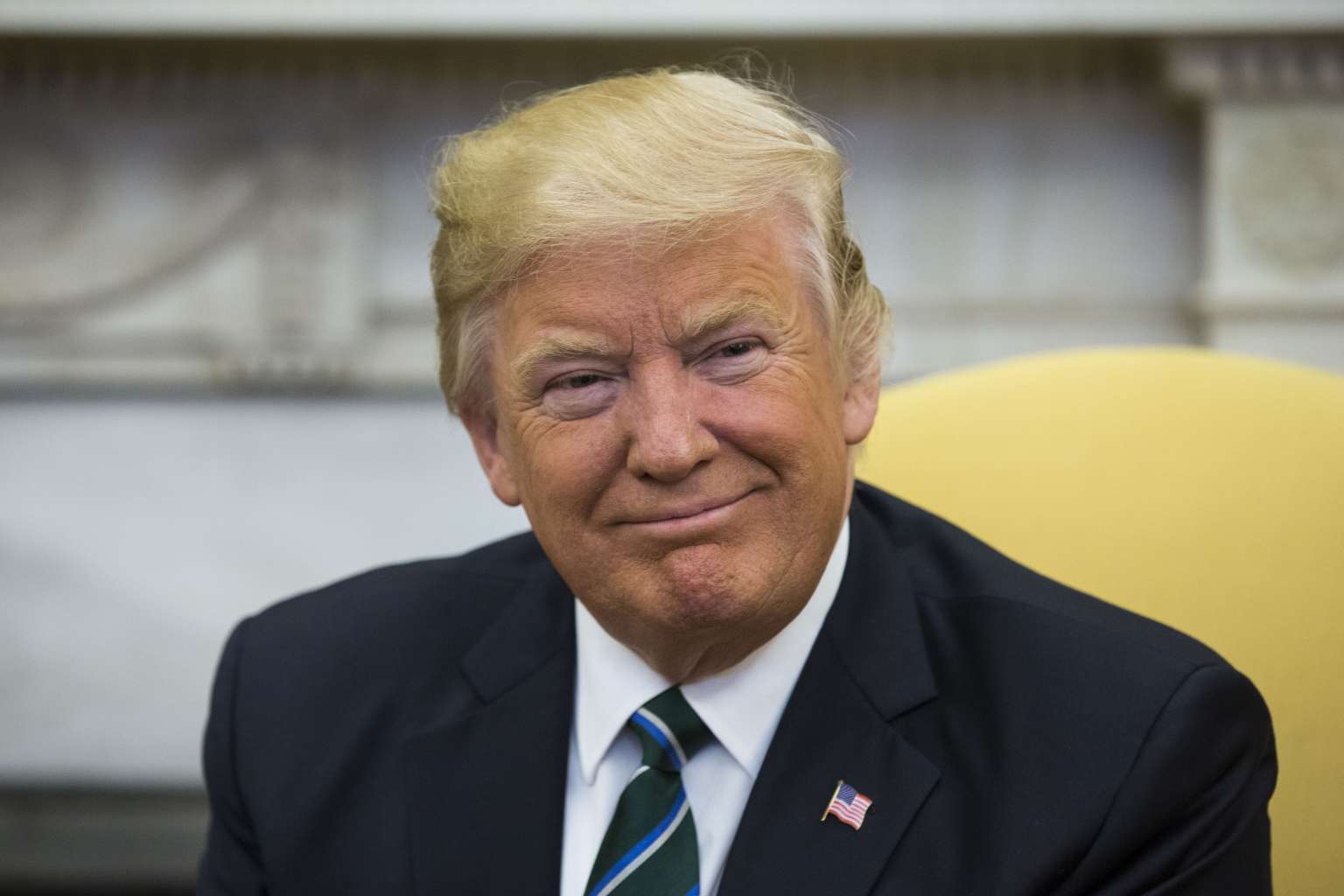Donald Trump plans 28% cut in budget for diplomacy, foreign aid
Sign up now: Get ST's newsletters delivered to your inbox

US President Donald Trump at the White House on March 16, 2017.
PHOTO: NYTIMES
WASHINGTON (REUTERS) - President Donald Trump's proposed 28 per cent budget cut for US diplomacy and foreign aid next year would preserve US$3.1 billion (S$4.3 billion) in security aid to Israel but reduce funding for the United Nations, climate change and cultural exchange programmes.
The budget proposal for the fiscal year beginning on Oct 1 is a first shot in a battle with Congress - which controls the government purse strings - that will play out over months and may yield spending far beyond Trump's requests.
Congress, controlled by Trump's fellow Republicans, may reject some or many of the proposed cuts to the US State Department and Agency for International Development (USAid) budgets for maintaining America's diplomatic corps, fighting poverty, promoting human rights and improving health abroad.
The White House is proposing a combined US$25.6 billion budget for the State Department and USAid, a 28 per cent reduction from current spending, according to documents the White House provided on Thursday.
"This is a 'hard power' budget. It is not a 'soft power'budget," Mick Mulvaney, Trump's budget director, told reporters, referring to the president's desire to prioritise military power over the influence that can flow from development aid.
In Tokyo, US Secretary of State Rex Tillerson defended the cuts as a necessary correction to a "historically high" budget for the State Department that had grown to address conflicts abroad in which the United States was engaged as well as disaster aid.
Tillerson said there would be a "comprehensive examination" of how the State Department's programmes are executed and how the department is structured.
Trump's budget proposes spending US$54 billion more on military spending and sinking more money into deporting illegal immigrants.
'KEEPING AMERICA SAFE'
Senator Ben Cardin, the top Democrat on the Senate Foreign Relations Committee, said he was deeply disappointed and dismayed at Trump's proposal to slash foreign affairs spending.
David Miliband, president and CEO of the International Rescue Committee, said the roughly one-third cut in foreign aid endangered US values and interests abroad.
"What's more, the US foreign assistance budget makes up a mere 1 per cent of the federal budget - a tiny category of discretionary spending which saves lives and spreads goodwill around the world," he said.
More than 120 retired US generals and admirals urged Congress in a letter last month to fully fund diplomacy and foreign aid, arguing the functions were "critical to keeping America safe."
The budget also requests US$12 billion in "Overseas Contingency Operations," or OCO, funding for extraordinary costs, chiefly in war zones such as Afghanistan, Iraq and Syria. No comparison was provided for the current year's OCO spending.
The White House did not provide many details in its "skinny" budget proposal, a precursor to a more detailed budget submission the White House has said it will produce in May.
The budget would provide US$3.1 billion "to meet the security assistance commitment to Israel... ensuring that Israel has the ability to defend itself from threats" and maintain its military superiority over more populous Arab neighbours.
It would also "maintain current commitments and all current patient levels on HIV/Aids treatment" under PEPFAR, the President's Emergency Plan for Aids Relief, the world's largest provider of Aids-fighting medicine. The programme has been credited with saving millions of lives and enjoys bipartisan support.
The budget would also meet US commitments to the Global Fund for Aids, Tuberculosis and Malaria, the documents said.
LOWER UN FUNDING
Without giving specifics, the documents laid out areas where the White House plans to save money, including by reducing US funds to the United Nations and affiliated agencies "by setting the expectation that these organisations rein in costs and that the funding burden be shared more fairly among members."
The United States would cut its contribution to the UN budget by an unspecified amount, and the US government would not pay for more than 25 per cent of UN peacekeeping costs, the documents said.
The United States is the largest contributor to the United Nations, paying 22 per cent of the US$5.4 billion core UN budget and 28.5 per cent of the US$7.9 billion UN peacekeeping budget.
Trump also plans to save money by eliminating the US Global Climate Change Initiative, which among other things seeks to foster low-carbon economic growth, and by ceasing payments to UN climate change programmes via the Green Climate fund.
He proposes cutting funds to multilateral development banks such as the World Bank by about US$650 million over three years from the Obama administration's commitments; reducing money for the State Department's Educational and Cultural Exchange Programmes; turning some foreign military aid into loans from grants; and reorganising the State Department and USAid.


